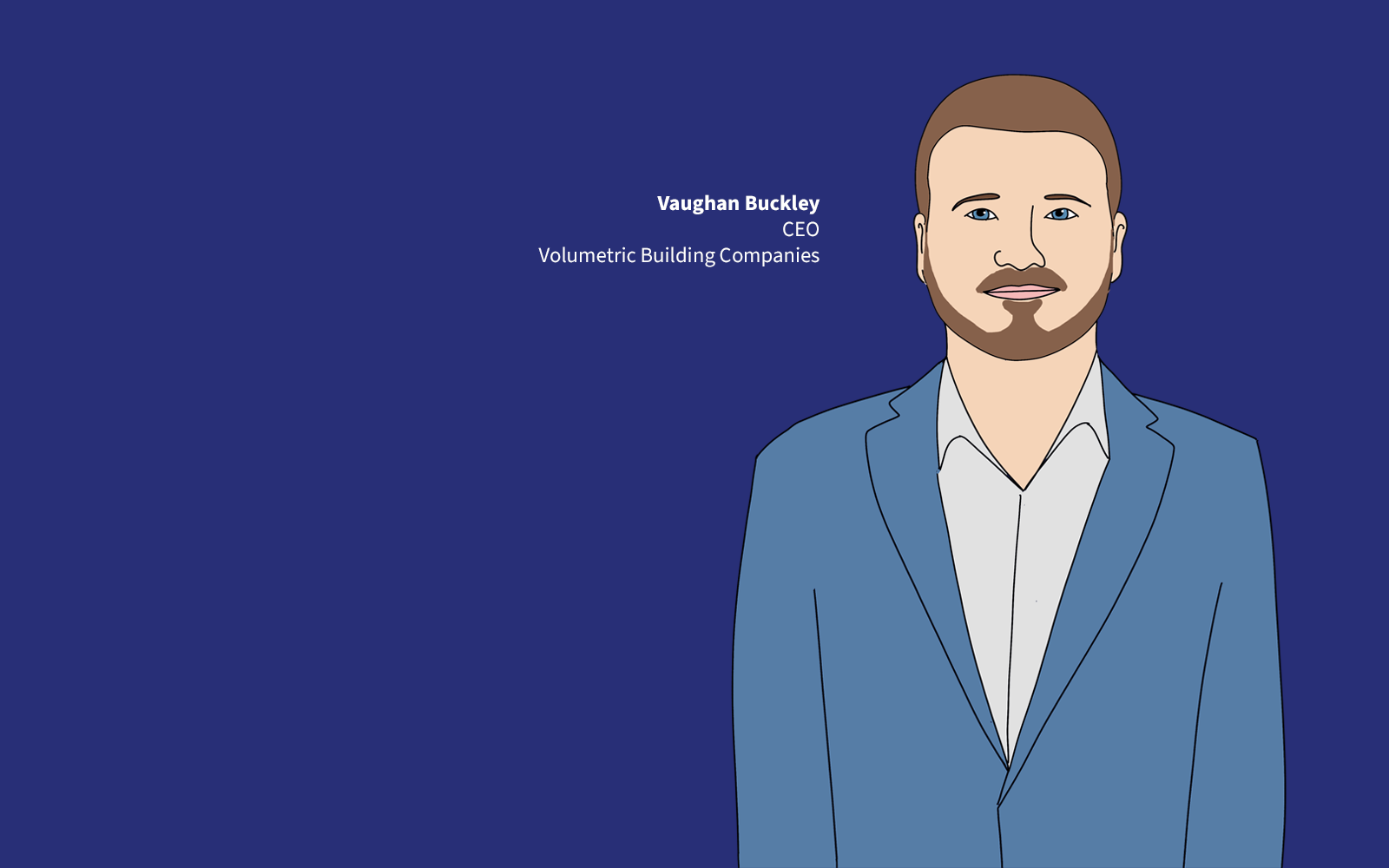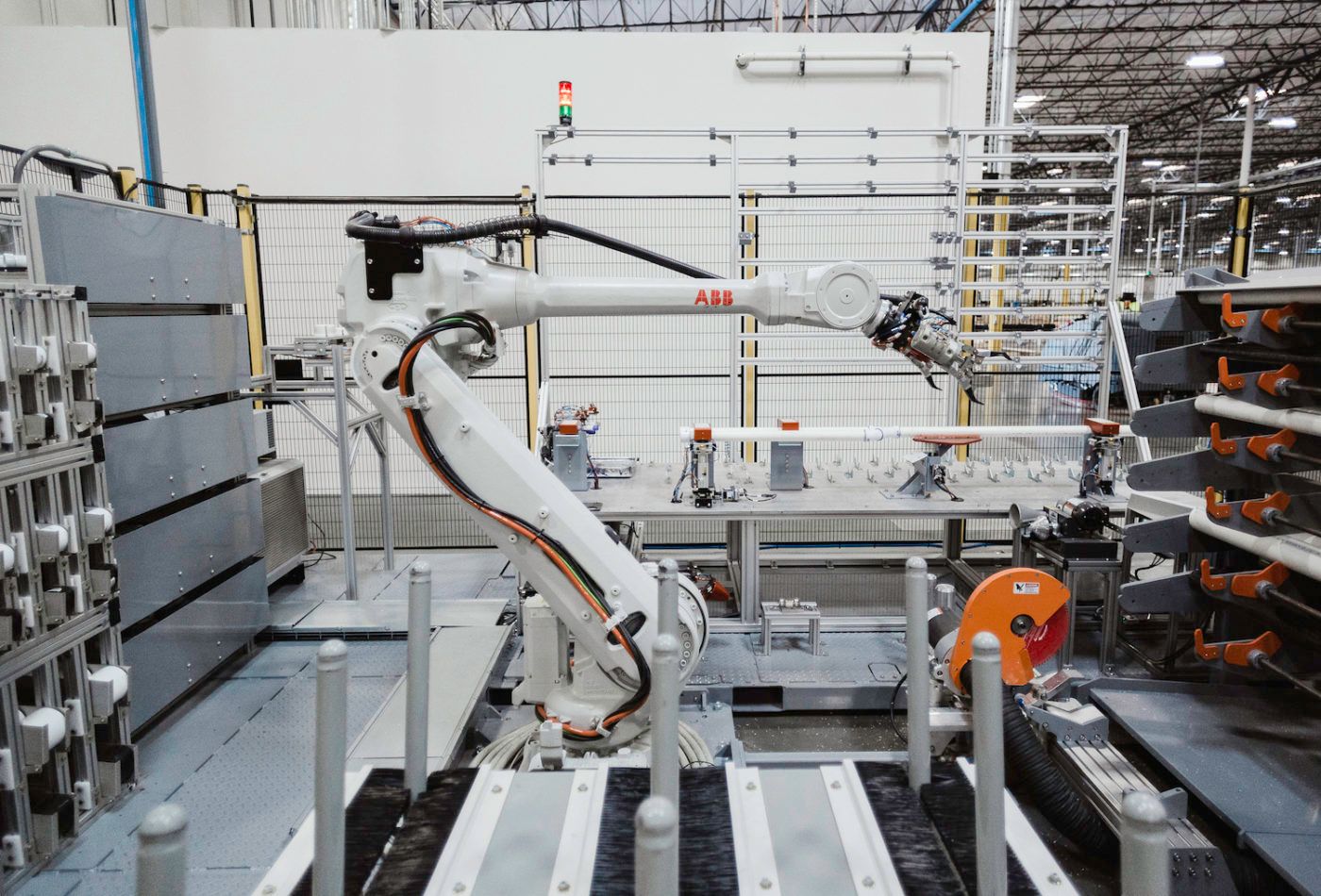Technology
Tracy Reboot: VBC Breathes Life Into Plant Out Of Katerra's Ashes
The Philadelphia-based multifamily modular innovator Vaughan Buckley looks to build on a housing-as-a-service model he's ramping up with a track record of success.

Philadelphia-based multifamily modular builder Volumetric Building Companies announced it has clinched approval to buy a package of Katerra, Inc. assets, including the lease and tenant improvement of its state-of-the-art manufacturing facility and offices in Tracy, CA.
The deal for the three-years young 577,000 square foot Tracy plant, with United States Bankruptcy Court for the Southern District of Texas, is for a reported $25 million, about 42 cents on the dollar for the Katerra assets.
Here's how Katerra head of manufacturing Matt Ryan described its facility and its designed purpose.

“Tracy features 30 fixed robots, 12 mobile robots, and a digital manufacturing process using Self-Guided Vehicle technology. It is a step-change from our Phoenix factory, accelerating Katerra’s production of high-quality building components manufactured to precision.”
Katerra filed for bankruptcy protection on June 6, 2021, and the transaction is part of a court supervised sale of its assets.
With the Tracy facility now in its manufacturing and distribution portfolio, VBC adds its own West Coast service area to its already-established Hamlet, N.C. factory, and can extend its building-as-a-service network.
VBC ceo Vaughan Buckley made this statement in connection with the company's announcement of its deal to acquire the massive Tracy facility.
“With the continued growth and success of VBC, we were exploring options to expand our manufacturing footprint and industry influence,” said Vaughan Buckley, Chief Executive Officer of VBC. “Katerra’s Tracy location provides an exceptional opportunity to bring our hands-on construction and manufacturing expertise to a state-of-the-art facility and build our presence on the West Coast. We look forward to moving quickly to allow displaced staff members to return to work, restart production and support the needs of a very robust construction environment.”
VBC is encouraging former Katerra employees to apply to work at the Tracy location as it reopens and begins production by submitting at the link below. VBC is looking to begin manufacturing of windows, cabinetry, countertops, trusses & panelized building components in 60 – 90 days and has plans to produce modular housing components in 2022.
“Katerra’s bankruptcy and the shutdown of the Tracy location significantly impacted its employees as well as a wide range of customers,” added Buckley. “We are hopeful that we can provide jobs to many of those employees and help address the needs to those customers. We well understand the current state of play in the construction sector and our goal is to provide, great products, superior service and customized solutions for the vibrant California and western U.S. markets.”
Ken Semler, ceo of Impresa Modular, which announced its own factory expansion plans in late July, cheered the VBC announcement.
This acquisition will allow them to possibly be a supplier to the industry much like MiTek and Clayton Homes (both Berkshire Hathaway Companies). This industry has so much opportunity and so much room for growth.
There are many ways to accomplish offsite construction. Over the coming years, the construction industry is going to see many new players emerge and many existing players carve out their niche. Hopefully, one of the lessons learned from the KATERRA failure was that the U.S. construction industry is so big that one company can't control it all. It is way more profitable to pick just one area and be the very best at it!
So, in three weeks' time, we've seen significant factory-expansion plans of an up-and-comer in the offsite building world, Nexii, as well as PulteGroup's ICG, and Impresa Modular, each with a housing-as-a-service (to builders, developers, investors, etc.) dimension. Capital investment is pouring into building technology, factories, modernization, and precision manufacturing, for the reasons we all know: labor constraint, materials and productivity waste, construction quality, speed of assembly, and environmental impacts.
As the reportedly misattributed quote to the late U.S. Senator Everett Dirksen goes:
It’s a billion here and a billion there, and by and by it begins to mount up into money."
Join the conversation
MORE IN Technology
AI Isn’t Optional: Marc Minor’s Call To Homebuilding Leaders
At The Builder’s Daily Focus on Excellence Summit, Higharc CEO Marc Minor urged homebuilding executives to do two hard things at once: run lean—and build the muscles for continuous innovation through AI.
HistoryMaker Homes Reinvents Itself From The Data Up
Chief Digital Officer Ty Brewer’s digital transformation playbook aims to drive operational unity, accountability, and agility in a turbulent market environment. The Builder's Daily unpacks the process.
Andrin Homes Turns Customer Pain Into Business Culture Shift
Facing the toughest Toronto market in decades, Andrin operationalized a proactive homeowner experience strategy. What started as a service platform became a catalyst for team alignment, trust, and performance.
